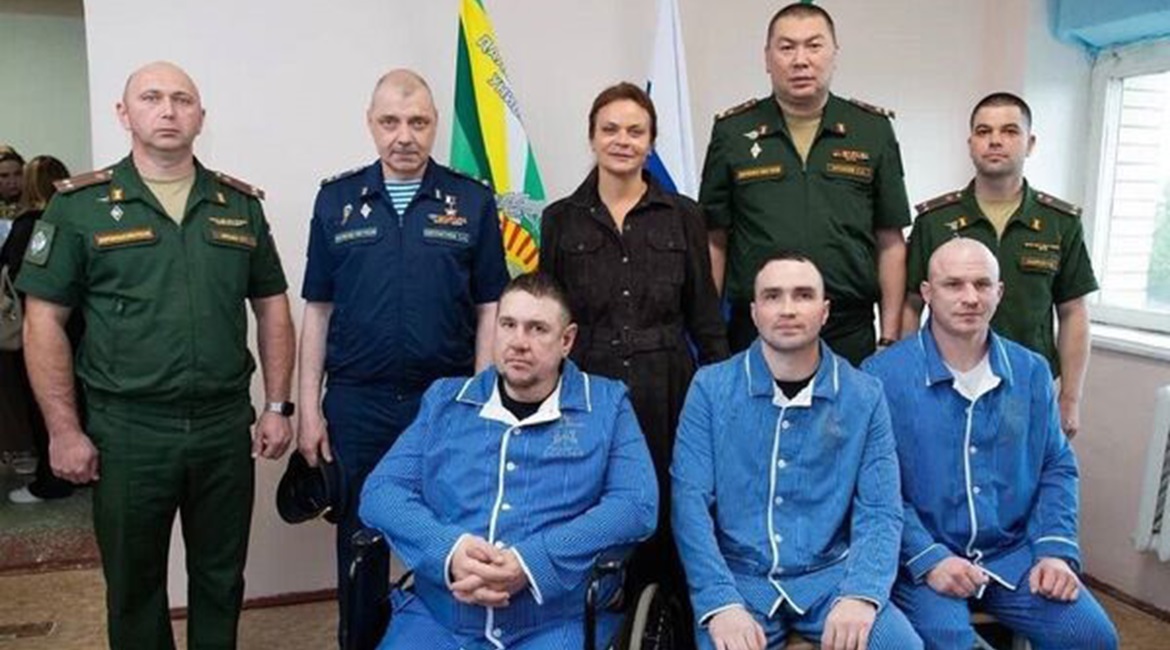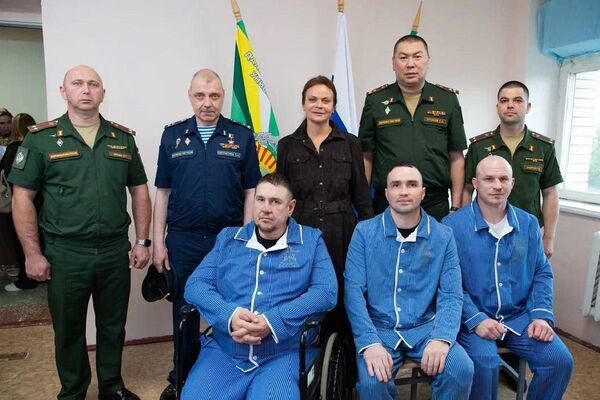
Date Posted: 20-Jun-2024
Key points
- Event: On 17 June Russian President Vladimir Putin appointed four new deputy defence ministers – three taking up roles in financial functions and internal management, and the fourth in the social care of military personnel
- Significance: The four appointments are almost certainly merit-based, including Anna Tsivileva, who, irrespective of being Putin's niece, twice removed, is arguably fully qualified for the role
- Outlook:The ministry's financial department is very likely tasked with accelerating the transition to a closer integration with Russia's civilian economy, boosting both military and civilian production, while the social care department will very likely pre-emptively act to reduce any discontent that could arise within a military at war
Event
On 17 June Russian President Vladimir Putin appointed four new deputy defence ministers – Leonid Gornin, Pavel Fradkov, Oleg Savelyev, and Anna Tsivileva. Gornin, Fradkov, and Savelyev were given roles in financial functions and internal management, and Tsivileva was appointed to a role in the social care of soldiers and veterans.

Anna Tsivileva (centre, top row) with fellow MoD officials visiting wounded Russian soldiers as part of the MoD's social care and rehabilitation programme. (Russian Ministry of Defence)
Significance
Following his inauguration on 7 May, Putin made several key appointments, including Andrey Belousov as Russian Minister of Defence, on 12 May. Belousov has a strong economic, mathematical, and planning background, and previously served as first vice prime minister. His appointment highlighted the Ministry of Defence's (MoD's) expanded role through its increased defence budget. The MoD will play a larger role in Russia's industrial economy, where it is expected to simultaneously scale-up weapons production and co-ordinate the military-civilian co-operation and output between defence and civilian manufacturers.
Given the previous track record of the new deputy ministers, Janes assesses that the appointments are almost certainly merit-based. The outgoing deputy ministers were publicly commended for their service by Belousov, indicating that they are very unlikely to be subject to corruption allegations. Ongoing public corruption cases against other former MoD officials – Timur Ivanov and Yuriy Kuznetsov, arrested on 23 April and 13 May respectively – further indicate this assessment.
Gornin, newly appointed as first deputy defence minister in charge of finance, graduated from the State Finance Academy at the Russian Ministry of Finance, and previously served as the Russian first deputy finance minister. Fradkov, appointed to be in charge of property, land resources, and facilities construction, graduated with distinction from the elite Suvorov Military Academy, followed by studies at the Federal Security Service (Federalnaya sluzhba bezopasnosti: FSB) Academy, and economics at the Diplomatic Academy of the Ministry of Foreign Affairs. Until his appointment as deputy defence minister he served in financial function at the Federal Agency of State Property and the Russian Presidential Administration. Savelyev, appointed as the MoD chief of staff, graduated in physics and worked as lead auditor for defence at the Accounts Chamber of the Russian Federation.
Тhe three new appointees to financial functions are replacing Ruslan Tsalikov, Pavel Popov, and Tatyana Shevtsova – all three were released from duty with honours, and almost certainly due to their ages and having served, in Janes assessment, as a closely knit team under former Defence Minister Sergei Shoigu, with Tsalikov serving under Shoigu since 2000, Popov since 2013, and Shevtsova since 2010.
Tsivileva, appointed as head of social support for soldiers and veterans, graduated from medical school, worked in public healthcare, and later in medical supplies sector. In 2023 she was appointed to a closely related role – as head of the ‘State Fund to Support Participants in the Special Military Operation – Defenders of the Fatherland', a body providing medical, post-surgery, and psychological support for soldiers or family members in cases of death in the Ukrainian conflict. This role is seen by Russian society as critically important and will almost certainly attract very high public scrutiny. Tsivileva (née Putina) is Putin's niece, twice removed. Her father, Evgeny Putin, is Vladimir Putin's cousin. In Janes assessment the appointment was meritocratic despite this familial link.
Tsivileva replaced Nikolai Pankov, who headed the MoD's personnel function since 2005, and was relieved from duty with honours, almost certainly due to age, having served in military since 1974. All four outgoing deputy ministers have already passed, or are approaching, their retirement age.
Outlook
Janes assesses that the four new ministers were almost certainly intended to strengthen the MoD's focus on financial and social care functions. The MoD's financial and economic departments are very likely to accelerate the transition to more closely integrate Russia's defence and civilian industrial economies, increasing co-operation with a view to boosting both the production of weapons and civilian or dual-use industrial products in response to the military requirements driven by the Ukraine conflict. When explaining the stronger future focus on finance for the MoD, Putin further recalled, during a defence meeting on 15 May, the Soviet Union's excessive military spending during 1980s.
Janes assesses that the strengthening of the MoD's social function – a difficult and highly scrutinised position – and Putin's personal focus on it, emphasised by the appointment of his relative, are very likely intended to counteract against any protest that could arise from perceived injustices relating to fair terms of service for the 300,000 mobilised soldiers; medical rehabilitation and therapeutic services for the wounded; and disbursements of the increasing number of benefits to the enlarged base of serving personnel and veterans.
After the February 2022 reforms prompted by the Russia-Ukraine conflict, benefits and payouts for the military personnel proliferated, both in numbers and scope. For example, the official site of the State Foundation of ‘Defenders of the Fatherland' listed 43 different payments and benefits including preferential pensions, preferential university slots, access to cultural and sports facilities, housing support, and partial exemptions from personal income and property taxes.
The government's newly formalised honourable releases from duty with commendations very likely indicate increased professionalism of the work of the Presidential Administration and the MoD and are very likely intended to boost the departing senior officials' loyalty.
Janes assesses that in the medium-term two-year period the MoD will continue seeking to improve its military personnel and social function, focusing on all aspects of military service including salaries, benefits, medical rehabilitation, and ‘social prestige', all aimed at preventing any dissatisfaction and boosting the loyalty of the military as the Ukraine conflict continues.
(Note: Items from news/wire services are abstracted from the originals and are not verbatim)






